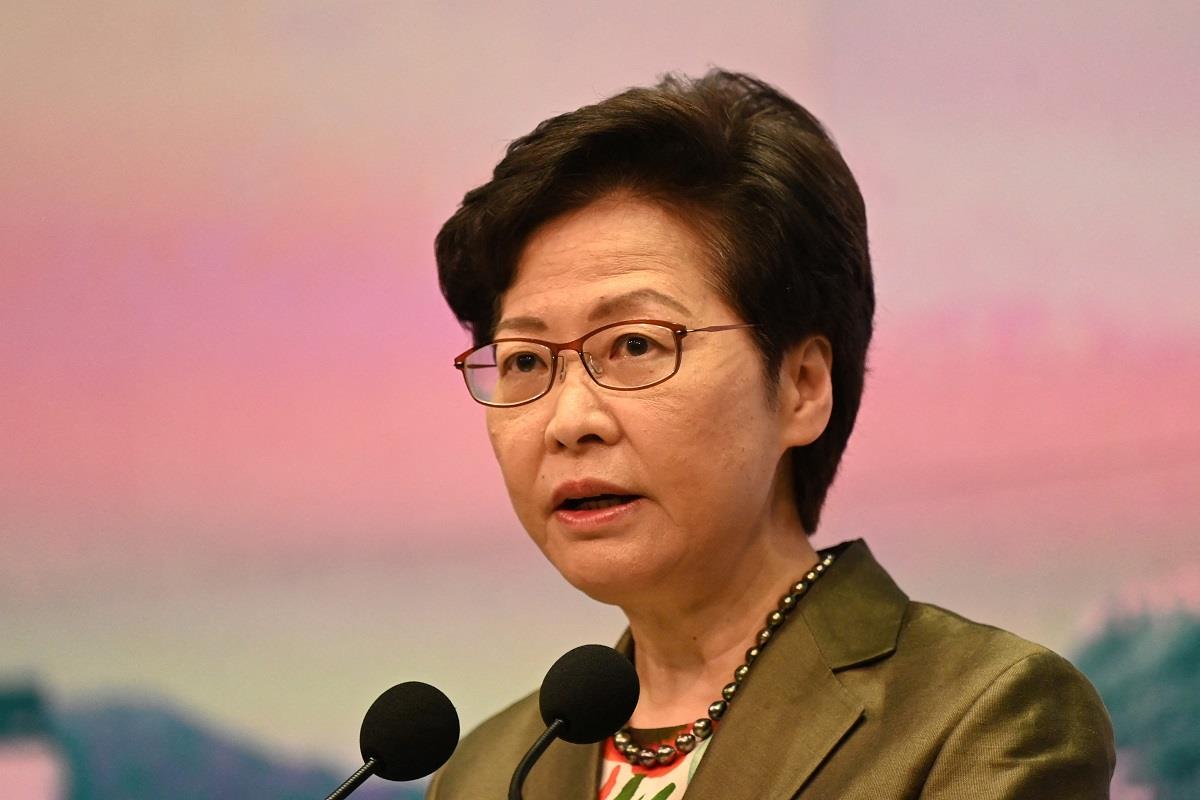(MENAFN- Asia Times)
Hong Kong's Chief Secretary John Lee is expected to be the sole candidate in next month's election for Chief Executive after the pro-Beijing camp said competition could hurt unity.
Lee tendered his resignation, pending Beijing's approval, on Wednesday and announced his plan to run for the top post in Hong Kong with a five-year term starting from July 1. Key members in the pro-establishment camp have said he is the best candidate in the city.
Several members of the pro-Beijing camp said Lee's expertise was in security through years in the Police force. financial Secretary Paul Chan, who had previously been tipped as a strong candidate for the next Chief Executive, said he wished Lee good luck with his election campaign.
Since anti-extradition protests broke out in Hong Kong in June 2019, Beijing's changing policy on the financial hub has become a key focus for the city's 7.5 million population and the tens of thousands of expats based there.
When street protests intensified in early September 2019, a sound clip obtained by Reuters revealed that Chief Executive Carrie Lam told the business community in a closed-door meeting that she could have resigned if she had a choice. Lam said at that time that she did not submit a resignation letter to Beijing.
Over the past two years, Lam had refused to comment on whether she would seek another term. On Monday, she told a media briefing she would leave the government after June 30 to spend time with her family.

Carrie Lam says she now wants to spend time with her family. Photo: AFP / Peter Parks
On Wednesday, Lee announced his resignation and plans to run in the Chief Executive election, which will be held on May 8. On the same day, the central government's Liaison Office in Hong Kong held meetings with key members of the 1,500-strong Election Committee.
Citing some participants of the meetings, RTHK reported that Liaison Office officials said Lee would be the sole candidate in the election.
Among those attending the meeting, Lo Man-tuen, the vice-chairman of the All-China Federation of Returned Overseas Chinese, said only one candidate from the pro-establishment should join the Chief Executive election so the pro-Beijing camp would stay united while Hong Kong was still grappling with Covid-19.
Lau Siu-kai, vice-president of the Chinese Association of Hong Kong and Macau Studies, said the one candidate arrangement did not mean there would not be competition in future elections.
Lau said Hong Kong was in an initial period of“patriots administering Hong Kong,” while anti-China powers were only in“hibernation” after the National Security Law was implemented on June 30, 2020. He claimed enemies could disrupt Hong Kong if there was competition in the election.
On March 11 last year, the National People's Congress announced a plan to change the Chief Executive election rules by adding 300 seats in the Election Committee, replacing seats that represent the District Council and increasing the nomination requirements. After the changes, Beijing could control the number of candidates to reduce what see as risks.
Some political commentators said the coming election would be the last step for Beijing to complete its political reforms in Hong Kong after the anti-extradition protests in 2019.
In January 2020, then-Liaison Office chief Wang Zhimin was replaced by Luo Huining. In February the same year, Xia Baolong, a long-term ally of Chinese President Xi Jinping, was appointed as the new director of the Hong Kong and Macau Affairs Office, while original director Zhang Xiaoming became one of three deputies.
Xin was known for ordering crosses on the roofs of churches in Zhejiang to be torn down in 2014 and 2015.
Last December, the pro-establishment camp won 89 of the 90 seats in the Legislative Council as the pro-democracy camp boycotted the elections after Beijing changed the election rules in April.
On January 19 this year, Beijing appointed Peng Jingtang, a former deputy chief of staff of the People's Armed Police (PAP) and Xinjiang PAP chief of staff, as the new commander of the People Liberation Army's (PLA) garrison in Hong Kong.
After an official visit to Xinjiang, Lee, the then-Secretary for Security, told lawmakers in January 2019 that he did not see any violation of human rights in the anti-terrorism work in the Chinese southwestern province.
He said there had been many terrorist attacks in Xinjiang in the past, but the situation had improved in the past two years. He said such an experience should be a reference to Hong Kong.

On April 6, 2022, Chief Secretary John Lee announced to run for the Chief Executive election. Photo: HK Govt
Last December, Lee said it was urgent for Hong Kong to complete the legislation of the Basic Law's Article 23, which added offenses such as theft of state secrets and treason on top of those in the existing National Security Law.
After Lee graduated from secondary school, he started his career as a constable in the Hong Kong Police Force in 1977. He was promoted to Chief Superintendent of Police in 1997. He earned his bachelor's degree in a joint program between the police force and Charles Sturt University in New South Wales, Australia.
In 2012, he joined the government as the Deputy Secretary for Financial Services.
Lee was among 11 Hong Kong officials who were sanctioned by the United States in 2020 for“undermining Hong Kong's autonomy and restricting the freedom of expression or assembly.”
Read: Who's to blame for Hong Kong's Covid catastrophe?
Follow Jeff Pao on Twitter at @jeffpao3
MENAFN10042022000159011032ID1103987074
Legal Disclaimer:
MENAFN provides the information “as is” without warranty of any kind. We do not accept any responsibility or liability for the accuracy, content, images, videos, licenses, completeness, legality, or reliability of the information contained in this article. If you have any complaints or copyright issues related to this article, kindly contact the provider above.